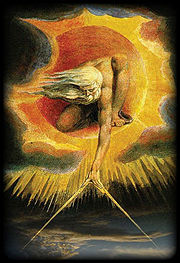
Beyond Belief: Science, Religion, Reason and Survival
Encyclopedia

The Science Network
The Science Network is a non-profit, web-based organization concerned with science and its impact on society.The mission of The Science Network is to build an online science and society agora, or public square, dedicated to the discussion of issues at the intersection of science and social policy...
's annual Beyond Belief symposia, held from November 5 to November 7, 2006, was described by the New York Times, as "a free-for-all on science and religion," which seemed at times like "the founding convention for a political party built on a single plank: in a world dangerously charged with ideology, science needs to take on an evangelical role, vying with religion as teller of the greatest story ever told." According to participant Melvin Konner
Melvin Konner
Melvin Konner, MD, PhD, is the Samuel Candler Dobbs Professor of Anthropology and Associate Professor of Psychiatry and Neurology at Emory University. He studied at Brooklyn College , CUNY , where he met Marjorie Shostak, whom he later married and with whom he had three children. He earned his PhD...
, however, the event came to resemble a "den of vipers” debating the issue, "Should we bash religion with a crowbar or only with a baseball bat?”
Conference goals and topics
The event was conceived as a response to the efforts of the Templeton Foundation to reconcile science with religion, according to its underwriter Robert Zeps, who told an interviewer, "I am not anti-Templeton in the sense of funding scientists to say mean things about religion. I simply believe that all study should be free of any particular agenda besides learning...Most take the position that the religious right are just nuts who are loud but frankly undeserving of a response...I believe that Bill Gates and Steve Jobs and pretty much all of the tech age wealth is firmly on the side of science and they need to step up and say so in a way that is heard by the anti-science lobby."Many conference participants leveled strong criticism at the activities of the Templeton Foundation, including claims that it attempted to blur the line between science and religion and that it funded "garbage research" aimed at showing a healing effect of prayer. The conference devoted its final session to "the negative effects of introducing religion into medicine." A Templeton spokesperson responded by warning against “commercialized ideological scientism," the effort to profit from promoting science as the only guide to truth.
NewScientist summed up the topics to be discussed as a list of three questions:
- Can scienceScienceScience is a systematic enterprise that builds and organizes knowledge in the form of testable explanations and predictions about the universe...
help us create a new rational narrative as poetic and powerful as those that have traditionally sustained societies? - Can we treat religionReligionReligion is a collection of cultural systems, belief systems, and worldviews that establishes symbols that relate humanity to spirituality and, sometimes, to moral values. Many religions have narratives, symbols, traditions and sacred histories that are intended to give meaning to life or to...
as a natural phenomenon? - Can we be good without GodGodGod is the English name given to a singular being in theistic and deistic religions who is either the sole deity in monotheism, or a single deity in polytheism....
? And if not God, then what?
Speakers included physicists Steven Weinberg
Steven Weinberg
Steven Weinberg is an American theoretical physicist and Nobel laureate in Physics for his contributions with Abdus Salam and Sheldon Glashow to the unification of the weak force and electromagnetic interaction between elementary particles....
and Lawrence Krauss, author Sam Harris
Sam Harris (author)
Sam Harris is an American author, and neuroscientist, as well as the co-founder and current CEO of Project Reason. He received a Bachelor of Arts in philosophy from Stanford University, before receiving a Ph.D. in neuroscience from UCLA...
, Michael Shermer
Michael Shermer
Michael Brant Shermer is an American science writer, historian of science, founder of The Skeptics Society, and Editor in Chief of its magazine Skeptic, which is largely devoted to investigating pseudoscientific and supernatural claims. The Skeptics Society currently has over 55,000 members...
, biologists Joan Roughgarden
Joan Roughgarden
Joan E. Roughgarden is an American evolutionary biologist.- Biography :...
and Richard Dawkins
Richard Dawkins
Clinton Richard Dawkins, FRS, FRSL , known as Richard Dawkins, is a British ethologist, evolutionary biologist and author...
, and astrophysicist Neil deGrasse Tyson
Neil deGrasse Tyson
Neil deGrasse Tyson is an American astrophysicist, a science communicator, the Frederick P. Rose Director of the Hayden Planetarium at the Rose Center for Earth and Space, and a Research Associate in the Department of Astrophysics at the American Museum of Natural History...
.

